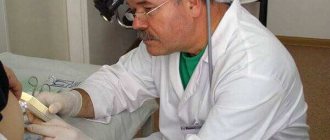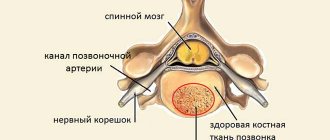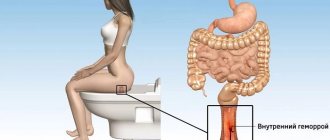Many people often try to find out the name of the doctor who treats the back and spine separately. This is due to the fact that there are many specialists who specialize in various back pathologies. These can be diseases of the nervous system, diffuse degenerative and infectious-inflammatory diseases.
The choice of a doctor who will help understand the cause of pain and cure the disease depends only on the etiological factor. First of all, the patient should contact a therapist, who will conduct a preliminary examination and find out the main symptoms of the disease. After which he will make an appointment with a doctor of a more specialized profile: a neurologist, vertebrologist, surgeon or other specialist.
Initial appeal
What is the name of the doctor who deals with the spine? This question is faced by many people who have back pain. It is worth noting that when unpleasant sensations occur, their cause may not always be pathologies in the spinal column. In some cases, the appearance of such symptoms indicates diseases of the stomach, heart, gastrointestinal tract, kidneys, etc. Such pathologies often manifest themselves as pain in different parts of the back, including the spine.
The diagnosis must be made by an experienced medical specialist. Self-medication can be not only ineffective, but also life-threatening. Where to start? First you need to visit a therapist. This doctor will be able to determine what symptoms accompany the disease, how they appeared and how long ago. The therapist may also examine your spine. If there are obvious defects, he will be able to predict the development of a particular disease.
When the first symptoms appear, you need to contact a therapist. In this case, it is the first doctor. What is the name of a spine specialist? This is definitely not a therapist. He does not have the necessary competence to treat such ailments. Therefore, the therapist refers patients to the specialist who, in his opinion, has the appropriate qualifications. This is a specialist who can conduct in-depth diagnostics.
Perhaps the therapist will not refer the patient to a doctor who deals with diseases of the spine. If pain symptoms are more reminiscent of pathologies of internal organs, consultation with an appropriate specialist will be required. This could be a cardiologist, urologist, endocrinologist, gastroenterologist, etc.
In any case, you first need to visit a therapist. If the clinical picture reveals pathologies of the musculoskeletal system, the patient is referred to highly specialized doctors who are able to correctly diagnose various diseases in the spine.
Visit to an infectious disease specialist
Another liver specialist is an infectious disease specialist. He advises the patient on the treatment of different types of hepatitis.
An infectious disease specialist treats hepatitis
To date, 6 forms of this disease are known:
- Hepatitis types A and E are easier to treat and do not cause death.
- Diseases that are provoked by viruses B, C, D, G threaten with dangerous consequences. These pathologies cause cirrhosis and other liver diseases.
If a rash appears on the skin, feces and urine have changed color, discomfort and pain are felt on the right side under the ribs, then you should immediately visit an infectious disease specialist.
The second group of hepatitis is treated in a hospital setting under constant medical supervision. Comprehensive treatment is carried out to help prevent functional organ failure and other complications.
Chiropractor
Many people who ask the name of a bone and spine doctor mean a chiropractor. It is these specialists who promise quick healing from such ailments. It is worth noting that among chiropractors there are indeed many real specialists. They can restore your back health. However, the intervention of a chiropractor during the period when the disease is in the acute phase is strictly prohibited.
This specialist can perform a number of procedures only during the rehabilitation period. The pain syndrome should already be defeated at this time. Otherwise, the pathology will return again with a vengeance. It becomes neglected and requires much more serious treatment.
For uninitiated patients, a chiropractor is the only option when treating such ailments. They ask what is the name of the doctor who sets the spine. After a chiropractor's treatment, you can really feel better. However, this method cannot be considered independent. It must be used with a number of other influences. These include exercise therapy, physiotherapy, etc. Without this, the problem will not be eliminated. The relief will only be temporary.
Vertebrologist
When studying the question of what is the name of the doctor who treats the spine, it is worth paying attention to such a specialist as a vertebrologist. This is a specialist of a narrow profile. He deals with spine treatment issues. A vertebrologist carries out a correct diagnosis if a disease in this part of the musculoskeletal system is suspected.
This specialist can read radiographs and tomograms. Unlike a chiropractor, he has in-depth knowledge in the field of physical therapy. Moreover, he can give proper massage. The vertebrologist has the technique of performing manual therapy. Therefore, it is better to contact this specialist if problems with the spine arise. He has a wider range of knowledge.
In addition to physical therapy and manual therapy, a vertebrologist is sufficiently qualified to prescribe medication. It affects the spine by traction. After eliminating the inflammatory process, the vertebrologist carries out comprehensive rehabilitation of the patient. He knows in what sequence certain procedures should be prescribed. The doctor can use manual therapy techniques only after the inflammation and pain have been eliminated.
When considering the name of a doctor who treats the spine, it is worth contacting a vertebrologist when characteristic symptoms appear. Although he is a specialist in a narrow specialization, he is capable of conducting universal therapy. This doctor guides the patient from the beginning of treatment until the end of the recovery period. Recovery in this case occurs faster, and the result will be long-lasting. This is how a vertebrologist differs from a regular chiropractor.
Some members of this profession can even perform spinal surgery. However, it is worth noting that vertebrologists only see patients in large clinics in regional centers. This is a rather rare profession. Not everyone can get an appointment with a vertebrologist. For residents of the outback, this becomes almost impossible.
What symptoms indicate prostatitis?
A constant desire to go to the bathroom indicates serious problems with the prostate.
All men are afraid of prostatitis, but not everyone knows what kind of disease it is and how it manifests itself.
Prostatitis is an inflammatory process in the prostate gland. Moreover, inflammation can be of any etiology - bacterial, viral, fungal or even non-infectious. To make it easier for patients to understand the essence of the disease, prostatitis is divided into two large groups - infectious and non-infectious inflammatory processes in the prostate. In the first case, the cause is any pathogenic agent that has penetrated the prostate gland. Absolutely every man can face this type of disease, regardless of age, regular sexual activity and other factors.
The second group of prostatitis is non-infectious inflammatory processes. They arise due to stagnation of prostate secretion due to impaired trophism of the organ. This type of disease affects men over 40-50 years of age and is associated with a lack of regular sex and a sedentary lifestyle.
A healthy middle-aged man needs regular sex life. On average, doctors recommend having sex 3-4 times a week to maintain normal prostate function.
Before you figure out which doctors treat prostatitis in men, you should find out what signs indicate this disease. In general, you should consult a doctor if the following symptoms appear:
- urinary disturbance;
- feeling of bladder fullness immediately after visiting the restroom;
- violation of potency;
- pain in the prostate, anus, bladder.
The main symptom of prostate disease is frequent urination. In case of an acute infectious process in the organ, urination can reach up to 10-15 times per hour. In this case, attempts to urinate are accompanied by severe pain and pain in the urethra.
With a non-infectious inflammatory process, urination is frequent but difficult. If urination is painful during acute inflammation, then during a sluggish process a man needs to strain all the muscles of the pelvic floor to empty the bladder. The stream of urine is weak and scanty, and the process of urination does not bring relief.
With non-infectious congestive prostatitis, potency is primarily affected. Painful sensations in the pelvic organs may be absent, but the man’s potency gradually worsens, then the erection begins to weaken, and ejaculation is impaired. If prostatitis is not detected in time, without knowing which doctor to make an appointment with, you can lead to the development of impotence.
Neuropathologist
In search of an answer to the question, what is the name of a back and spine doctor, people receive a referral from a therapist to a neurologist. In most small clinics, it is this specialist who deals with pathologies in this area. However, it is worth considering that the scope of competence of a neurologist includes spinal disease in the acute stage. At this time, the roots of the spinal nerves are pinched by the vertebrae.
After being examined by a therapist, the patient is referred to a neurologist in a small local clinic. The task of this specialist is to relieve the inflammatory process. To do this, he must remove the infringement of the neurovascular bundles. This will relieve back pain.
As a result of manipulations carried out by a neurologist, the patient notes an increase in sensitivity in the limbs and their movement. Proper blood flow is restored through the cerebral arteries. Due to pinched nerves, the functioning of internal organs may also be impaired. Therefore, the treatment prescribed by a neurologist can improve their work. In general, the patient feels well.
However, it is worth considering that a neurologist cannot be considered a universal specialist in this field. He works together with medical specialists from other areas. Such support is required at virtually every stage of the recovery process. In this case, consultations are carried out with doctors of related professions.
What orders will the doctor make?
If immediately after the first visit the doctor makes a diagnosis (gastritis) and prescribes treatment, consider whether to contact another one. A true doctor, who knows well the specifics of his work, the main diseases of his specialty, and their characteristics, will not immediately identify the disease and prescribe medications. For example, gastritis can be of different types, with different acidity, in different organs of the digestive system; treatment can differ significantly in the prescribed medications and duration.
Orthopedist
What is the name of a doctor who specializes in spinal curvature? This is an orthopedist. It is the curvature of the spine that is the most common problem that is within the competence of this specialist. This is a narrow specialization. Most often, problems treated by an orthopedist occur in childhood. The bones and cartilage tissue of babies have not yet had time to fully form. They are soft and mobile.
Therefore, when unfavorable factors occur, children develop spinal curvatures much faster than adults. However, treatment of such ailments at an early age is easier and faster. If an adult has problems with posture, it is worth preparing for a long period of treatment.
An orthopedist can make a diagnosis after conducting appropriate examinations. He also prescribes comprehensive treatment. The main pathologies that fall within the scope of this specialist’s competence include scoliosis and poor posture, deformities due to osteoarthritis, congenital disorders of the spine, and severe osteochondrosis. In addition, if you are interested in the name of a doctor for spinal hernias, you should contact an orthopedist.
This doctor may refer the patient for a CT scan or MRI. He carries out conservative treatment. After an in-depth diagnosis, medications are prescribed, including injections and tablets, exercise therapy and physiotherapy. In some cases, the orthopedist prescribes wearing a corset, bandage, movement restrictors, etc.
Self-medication
The general treatment regimen for women, regardless of who is treating cystitis, is as follows:
- Diagnostics and examination. Laboratory, hardware and instrumental.
- General examination of blood and urine composition. They will allow us to find out the causative agent of the inflammatory process that provokes the development of cystitis in a woman.
- Prescribing a course of antibacterial therapy. Can be supplemented with antiviral, antifungal, and antimicrobial drugs.
- Prescribing a course of antispasmodics. To relax the smooth muscles of the bladder.
- Prescription of immunomodulators. To strengthen the protective forces of the immune system.
- Maintaining sufficient drinking regime. This will help speed up the cleansing of your bladder and the elimination of toxins.
If cystitis is complicated by additional negative symptoms, it is important to determine what exactly provoked this form of the inflammatory process in the bladder. These factors are:
- Poor diet, rich in fatty foods, spicy and fried foods and insufficient amounts of vitamins.
- Problems with the gastrointestinal tract, manifested by constipation and chronic fatigue. All this negatively affects the entire body and the genitourinary system in particular.
- Lack of sleep, as well as hard physical and mental labor. They provoke exhaustion and weakening of the body, reducing the level of immune defenses.
- Allergy.
- Hormonal imbalance in a woman's body.
On the issue of creating a proper diet, as well as problems with the gastrointestinal tract, you should consult with a gastroenterologist, but if you have problems with the endocrine system and diagnosing hormonal imbalance, you should visit an endocrinologist.
If you have problems in the field of psychology, you should undergo a course of diagnosis and treatment from a psychologist, as well as a psychotherapist. In any case, when the first signs of cystitis appear, you should not delay treatment and be sure to undergo an examination by a doctor. At the same time, it is important to understand that help may be required from both a therapist and other highly specialized specialists.
This mistake is made by many patients who have no time or are afraid to seek help from a specialist. The belief that you can get rid of any disease with the help of superficial knowledge gleaned from the Internet, tips from a pharmacist, or the advice of friends and relatives usually leads to irreversible consequences.
Self-medication is dangerous because you can trigger a severe form of cystitis and miss the time needed to provide emergency medical care. Incorrectly performed procedures, medications that do not help, or manipulations that can temporarily extinguish a developing disease lead to problems. Most often, the consequences of self-medication have to be corrected by specialists already in the hospital.
An untreated infection can rise higher - to the kidneys or become chronic, which will worsen with any decrease in immunity.
Experts say that sometimes, due to an incorrect diagnosis, a patient is treated for a disease that he does not have. To avoid such errors, treatment is prescribed after a thorough examination and passing all the necessary tests.
Often, in order not to endure pain, patients take painkillers. It should be noted that with the help of pain, the body signals some malfunction in the functioning of certain organs. Therefore, by taking a painkiller, you only get rid of the consequences of the inflammatory process. The reason for its occurrence remains unchanged, and the process itself may even intensify and remind itself again with greater intensity.
We invite you to familiarize yourself with Calcifications in the prostate gland: treatment, ultrasound, surgery
By contacting a doctor, you thereby relieve yourself of responsibility for the development of the disease and allow a competent specialist to solve your problem. Cystitis can be cured quite quickly if you do not start the process of developing the disease.
With proper treatment, the discomfort caused by cystitis will go away within 1-2 days after starting medication. However, in order to completely eliminate the infection, it is necessary to undergo a full course of treatment, which will take at least 1 week. Upon completion, it is recommended to continue therapy with herbal preparations for at least another 2 weeks.
What additional means should be used to protect yourself from the recurrence of the disease can be found out by consulting with your treating specialist. Any doctor who usually treats cystitis in women will answer your questions and give detailed advice on your problem. If this is a gynecologist, he will tell you how to avoid complications in the form of cystitis in diseases of the genital organs.
The development of the disease itself and its complications can be caused by the following factors:
- poor nutrition;
- constipation;
- overwork;
- lack of sleep;
- hard physical labor;
- allergy;
- hormonal imbalance.
For advice on proper nutrition and problems with the digestive tract, you should contact a gastroenterologist; in case of hormonal disorders, an endocrinologist will help. If you have psychological problems, you may need to see a psychologist or even a psychotherapist.
So, when the first symptoms indicating cystitis appear, you should immediately consult a physician. Then you may need to consult with specialized specialists: urologist, nephrologist, gynecologist, etc. You should not self-medicate, but rather entrust the treatment of the disease to professionals!
Orthopedic surgeon
What is the name of the doctor who treats the spine in cases of severe deformities and serious degenerative processes? This is an orthopedic surgeon. This doctor specializes not in conservative, but in surgical treatment. Surgical intervention is required for advanced stages of spinal diseases.
Most often, such treatment is required for patients who have been diagnosed with serious stages of scoliosis. Also, if there is a hernia, only an orthopedic surgeon can remove it. The area of expertise of this specialist includes the appearance of osteophytes and other serious pathologies of the anatomical position of the spine.
It is worth noting that the musculoskeletal system cannot be considered by specialists separately. All his systems are connected. Thus, curvature of the spine (including advanced stages) can be caused by flat feet. The area of competence of this specialist, like an orthopedist, includes the treatment of such concomitant pathologies.
Rheumatologist
When studying the name of the doctor who examines the spine, it is worth noting such a specialist as a rheumatologist. It treats diseases that are associated with pathologies in the area of connective tissue (including the spine). Such unfavorable processes can also be observed in the area of bones and cartilage.
For various reasons, autoimmune pathologies can develop in the body. They lead to tissue damage in the area of various systems, for example, the spine. This manifests itself as back pain. To diagnose a rheumatic disease, a blood test is performed. Characteristic changes are found in it. For example, markers of the inflammatory process appear in biochemical analysis.
You will need to contact a rheumatologist if you suspect disorders in autoimmune processes. One of the most common diseases of this type is ankylosing spondylitis. The patient feels severe pain in the spine. Various deformities and stiffness in movement appear.
In addition, the represented specialist can treat psoriatic, rheumatoid arthritis and other similar ailments.
When to see a doctor
Even the slightest discomfort in the gastrointestinal tract cannot be ignored. Usually people who have been suffering from stomach problems for a long time try to treat themselves. But this can be dangerous, because indigestion affects the condition of the entire body. Often, intestinal problems are a consequence of gastritis, liver or gallbladder pathologies. In this case, the patient is usually already being treated by a therapist or gastroentrologist. But it is very important to know when you need to see a doctor urgently.
Typically, intestinal problems are indicated by the following signs:
Symptoms and treatment of intestinal diseases
- pain during defecation;
- prolonged constipation;
- frequent diarrhea;
- blood, mucus, or undigested pieces of food in the stool;
- pain in the navel or lower abdomen;
- decreased appetite;
- nausea, vomiting;
- flatulence, bloating, increased gas formation;
- belching, heartburn;
- weight loss, metabolic disorders;
- decreased immunity;
- general weakness, decreased performance.
Important: if at least a few of these symptoms appear, it is necessary to undergo examination. After all, the problems will gradually progress, disrupting the functioning of the entire body.
Traumatologist
In search of an answer to the question of what is the name of a doctor who treats the spine, it is worth considering the area of competence of such a specialist as a traumatologist. His area of competence is quite narrow. It treats pathologies caused by injuries. Most often, such disorders are caused by a blow, a fall, etc. An accident during which a strong physical impact was exerted on the spine can lead to various injuries.
The injury may be recent. In this case, we are talking about a bruise, fracture or other similar violations. A person is injured by falling onto a hard surface after being hit in the spine. Also, when lifting weights, such a pathology can occur. Therefore, if the cause of pain in the back is one of these problems, you need to contact a traumatologist.
Sometimes the injuries are long-standing. They can make themselves felt long after the accident. Such pathologies are also addressed to a traumatologist. He can determine whether the bones have healed properly after a fracture, whether there are any associated complications, etc.
How can every doctor help with hypertension?
Therapist. Prescribes drug therapy, which includes the following:
- Diuretics (diuretics) – remove excess fluid. This could be Furosemide, Ravel, Thiazide, Diuver, Veroshpiron.
- Antihypertensive drugs: Physiotens, Hartil, Bisoprolol, Lisinopril.
- Aspirin, Aspicard and the like are prescribed to thin the blood.
- To lower cholesterol levels - Zovasticor, Atorvastatin.
The therapist gives the following recommendations:
- reduce salt intake as much as possible;
- stick to a diet that contains minerals and vitamins;
- complete cessation of bad habits;
- physiotherapy;
- exclusion of stressful situations, mental and physical stress;
- maintaining normal body weight.
Cardiologist. If cardiac pathologies are detected, appropriate therapy is prescribed. In general, to eliminate hypertension, a cardiologist can prescribe the following drugs:
- ACE inhibitors (angiotensin-converting enzymes) normalize the tonic state of blood vessels.
- Calcium channel blockers improve the effect of calcium on the heart muscle, thereby reducing increased muscle tone.
- b-blockers restore the frequency of myocardial contraction.
- Renin inhibitors have nephroprotective and cardioprotective effects.
Endocrinologist, neurologist, nephrologist. These three specialists prescribe their own treatment regimen along with the therapy of a general practitioner or cardiologist. Accordingly, with general agreement. If, for example, diabetes mellitus is detected, additional medications are prescribed to lower glucose levels. For kidney disease, it is important to take medications that remove fluid and normalize kidney function.
Psychotherapist. A psychologist conducts long conversations with a hypertensive patient to restore the psycho-emotional background. This is especially important if the reasons for the increase in blood pressure lie in psychological imbalance. In addition, many patients have fears that are impossible to get rid of without the help of a specialist.
Knowing which doctor you need to contact if you have high blood pressure, you can safely go to the clinic. Please note that if you had diseases of the cardiovascular system before developing hypertension, then you can immediately contact a cardiologist, bypassing the therapist.
Oncologist
Sometimes, in search of an answer, as the spine doctor is called, the patient is referred to an oncologist. After examinations (MRI, tomography, etc.), it may turn out that a tumor is developing in the spine. The oncologist conducts subsequent in-depth diagnostics. He must determine which category the tumor belongs to.
Symptoms of such a pathology may include lumbago in the back, pain, and stiffness of movement. In some cases, mobility in the limbs or back is impaired. The earlier the disease is detected, the easier and more effective the treatment will be. Surgery is often required. In this case, it is determined whether a benign or malignant neoplasm develops in the spine. An oncologist surgeon deals with surgical treatment of such pathologies.
Oncological diseases
There are various oncological diseases of the digestive tract. The most common pathology diagnosed is liver cancer. Neoplasms form after metastases spread to the gland. The disease develops after sexual contact with infected partners due to hepatitis, regular, excessive alcohol consumption or cirrhosis.
Oncologist specializes in oncological diseases of the digestive organs
In order to stop the development of cancer, the oncologist treating the liver performs the following procedures:
- affects the organ using radio frequency waves;
- performs a surgical operation;
- affects damaged areas with chemicals.
It is important to identify the disease as quickly as possible and carry out treatment so that the prognosis for the patient is favorable.
The oncologist will examine the hemangioma, identify its origin and determine the tactics of action.
Other specialists
Having considered the name of a spine doctor, it is worth paying attention to related specialists. These can be physiotherapists, physical therapy doctors, massage therapists, etc. They are involved in the treatment process at a certain stage. Their work is aimed at restoring normal blood circulation in the spine, metabolism, as well as strengthening the back muscles and restoring the correct position of the spinal column.
In addition, at the diagnosis stage, additional consultation with specialists such as a cardiologist, endocrinologist, urologist, gynecologist, gastroenterologist, etc. may be required. They exclude or confirm the presence of diseases of the internal organs.
Having considered the name of a spine doctor, you can understand the specific competence of the listed specialists. Timely seeking advice will help solve the problem quickly, without consequences for the body.
From a young age to old age, every man and woman should be monitored by doctors. If a woman, if she has problems, goes to a gynecologist, then who is the male doctor?
Who treats various diseases of the genital area and infertility?
Who can solve various men's problems?
And is it necessary to go to such a doctor?
It is imperative to know the answers to these questions so that you don’t have to decide who to tell about your symptoms and ask for help.
Parasitologist for worms
For the treatment of pathological conditions caused by parasites of unknown etiology, it is recommended to consult a parasitologist. A doctor in this field has broad practical knowledge and is able to conduct a comprehensive examination and get rid of various pathogens. The scope of activity of a parasitologist includes the following tasks:
- detection and confirmation of parasitic disease;
- identification of the cause, methods of penetration of the pathogen;
- identification of the nature, type of parasite in the human body;
- choice of treatment regimen, methods of pathogen decontamination;
- monitoring the effectiveness and safety of therapy;
- preventive recommendations for patients to avoid relapse.
It is recommended to go to a parasitologist with worms in adults and children. Diagnosis of parasitic diseases is difficult due to the migration of pathogens (cysts, spores, larvae). To accurately identify the disease, doctors practice the methods of histocoprology, electron microscopy, helminth-ovocoproscopy, vegetative resonance testing and others.
Treatment of diseases caused by worms
The help of a parasitologist allows you to get rid of the following diseases:
- toxoplasmosis (infection with Toxoplasma);
- amebiasis (infection with amoebas);
- malaria (plasmodia infection);
- Giardiasis (infection with Giardia);
- fascioliasis (infection with liver or giant fluke);
- fasciolopsidosis (caused by flukes);
- ascariasis, enterobiasis, echinococcosis (helminthiasis).
After accurately determining the location of the parasite, the doctor treats worms in adults and effectively gets rid of other parasites. Methods of therapy – medicinal, surgical, instrumental.
What diseases does a urologist treat?
A urologist has an advanced practice. He identifies both male problems and deals with kidney and prostate diseases.
For example, he can treat
- Pyelonephritis;
- Urolithiasis;
- Prostatitis;
- Prostate adenoma;
- Cystitis;
- Phimosis;
- Urethritis;
- Sexually transmitted infections;
- Benign tumors of the testicles;
- Vesiculitis;
- Hydrocele;
- Male infertility;
- Cryptorchidism;
- Balanoposthitis.
If the diagnosis is not clear, then the first visit can be made to a urologist, and then he will decide who will treat the disease. Sometimes the problem is directly related to impotence, then the urologist will refer you to an andrologist. For diseases of the genitourinary system, the urologist treats himself, and diseases such as gonorrhea, syphilis and others are the competence of a dermatovenerologist.
Since everything is closely connected in men, there may be several reasons for the problem of impotence. For example, frequent cystitis, venereal diseases, plus prostatitis, all this can occur simultaneously.
Male doctor for male organs: what is the name?
Which doctor should a man consult for problems in the intimate sphere, infertility, male impotence, sexually transmitted diseases and similar problems?
- Urologist
- Andrologist
- Venereologist
- Endocrinologist
- Sexologist
Is a urologist a male or female doctor?
Urology deals with the treatment of diseases that affect the urinary tract (kidneys, ureter, bladder and urethra) and the external genitalia (penis and testicles in men).
Urologists treat these disorders in both men and women.
Pediatric urology includes problems that may occur in newborn infants (eg, phimosis, undescended testicle, renal stasis, urinary tract infections, etc.).
The most powerful means for penis enlargement
The guy went a little overboard with the product...
Gain weight
Find out details
dominator.ru
Urologists can also observe and manage men with prostate diseases, infertility, and some types of cancer. Genital surgery is considered a separate branch of urology, which focuses on operations in the area of the male reproductive organs.
Andrologist or urologist?
Men often ask what is the difference between a urologist and an andrologist.
A urologist diagnoses and treats diseases of the genitourinary organs.
An andrologist is a urologist who treats and diagnoses urethritis, varicocele, prostatitis, sexual disorders and other diseases.
If there are no problems with kidney inflammation, then you can simply contact an andrologist. Stories from our readers!
“Problems with “men’s” health appeared due to work and piled-up problems. The doctor forbids taking classic potency pills because they affect the heart and blood pressure.
I learned about effervescent tablets, the composition of which is completely natural, and therefore completely safe even for hypertension. After I started taking them, everything returned to normal and improved significantly!”
Andrologist - who is he and what does he treat?
The branch of medicine called andrology has long been an integral part of urology. However, due to the large number and specificity of diseases of the male reproductive organs, there is a need to identify a medical area dedicated only to these issues. This is how an andrologist appeared - a doctor who studies everything that has to do with the male reproductive system. He specializes in conditions associated with disruption of two important functions of the male body:
- reproductive (this is the name given to the process of formation of sperm capable of fertilization);
- sexual (here we mean the ability of a man to have full sexual intercourse).
Both of these functions determine the male ability to reproduce, reproduce (in other words, fertility). They largely depend on the health of the genitourinary system and the hormonal levels of the body. Therefore, the andrologist works at the intersection of urology and endocrinology.
The competence of an andrologist includes assistance with the following conditions:
- Age-related androgen deficiency, also called male menopause. This condition is associated with changes in hormonal balance in men who have crossed the 45-year mark. Testosterone production is reduced, causing deterioration of erection, decreased or complete absence of sexual desire.
- Male infertility. We talk about it if the partner does not become pregnant for a long time, and the examination has confirmed that she is healthy. This condition has many causes: previous diseases (mumps, hepatitis, sexually transmitted infections, pathological conditions of the testicles and spermatic cord, etc.).
- Erectile dysfunction (impotence) is the inability to achieve or maintain an erection. It occurs against the background of various pathological conditions: obesity, stress, infectious processes occurring in the body, as well as due to a decrease in the concentration of testosterone in the blood.
- Male hypogonadism is a decrease in testicular function, causing a decrease in the amount of testosterone and impaired spermatogenesis.
- Premature ejaculation that occurs before or shortly after insertion of the penis into the vagina.
- Difficulty with ejaculation (suppression of the ejaculation reflex, which occurs involuntarily).
- Androgenetic alopecia (male pattern baldness) is a pathological hair loss in men.
- Puberty disorders in male adolescents.
This doctor provides advice on male contraception, selecting the best methods to prevent unwanted pregnancy in a partner.
In this video, the andrologist answers delicate “male” questions:
An andrologist is a doctor who treats inflammatory and infectious pathologies of the male genital organs (prostatitis, etc.). There is no clear division between him and the urologist on this issue. The latter’s sphere of competence is broader, but the andrologist deals with topics affecting the maintenance and restoration of “male strength” in more detail.
How to always bring a girl to orgasm?
It's no secret that almost 50% of women do not experience orgasm during sex, and this greatly affects both manhood and relationships with the opposite sex.
There are only a few ways to always bring your partner to orgasm . Here are the most effective:
- Strengthen your potency. Allows you to prolong sexual intercourse from several minutes to at least an hour, increases a woman’s sensitivity to caresses and allows her to experience incredibly powerful and long-lasting orgasms.
- Learning and applying new positions. Unpredictability in bed always excites women.
- Also, do not forget about other sensitive points on the female body. And the first of them is the G-spot.
You can find out the rest of the secrets of unforgettable sex on the pages of our portal.
In addition, the andrologist understands endocrinological diseases, sexual disorders and valeology. Conducts ultrasound examinations and performs operations on any of the genitourinary organs except the kidneys.
Similarity of profession:
- Both are surgeons;
- Both of them deal with diseases of the genitourinary system of men;
- Any of them can make a diagnosis and perform an operation.
Differences between specialties:
- A urologist treats and diagnoses both men and women, while an andrologist deals only with men.
- The urologist is more responsible for diseases of the genitourinary sulfur, and the andrologist for his consistency in bed.
- A urologist is an extended medical specialization, and an andrologist is a narrow specialty.
Which doctor should I consult for gastritis?
Gastritis requires the intervention of a doctor who treats inflammation of the inner wall of the digestive organs - a gastroenterologist. The doctor deals with diseases of other organs involved in the digestion of food (liver, pancreas). Sometimes a doctor chooses a narrow focus, for example, a proctologist or hepatologist, which allows him to treat diseases of the intestines and liver. There are doctors who specialize in treating a specific disease. They are often consulted after a diagnosis has been made. The main thing when choosing a doctor is to find a professional who knows his own business and is able to prescribe the correct treatment for the disease.
If the clinic does not have a gastroenterologist, it is better for the patient to contact a local physician. The therapist will do a general examination of the patient’s health, prescribe blood and urine tests to find out about inflammation in the body. If further examination and treatment is necessary, he will refer you to a gastroenterologist.
Preventive examination
When a man goes to see a doctor, he is usually asked questions regarding personal problems.
Are there any disturbing symptoms, have you had urological diseases, does the patient have any chronic forms. An external examination of the genital organs is carried out. The shape and size of the genital organs are determined, and a rectal examination of the prostate can be performed.
In addition, analyzes and various laboratory studies are carried out:
- Urine and blood analysis;
- Level of testosterone in the blood;
- Analysis of prostate secretions;
- Ejaculate analysis;
- If cancer is suspected, tumor markers are prescribed;
- If there are complaints of infertility, a spermogram is taken;
- In addition, tests for sexually transmitted infections (HIV, AIDS, gonorrhea, syphilis, etc.) may be prescribed.
The order of tests will depend on the reason for the patient’s visit, his age and health complaints.
Pediatric urologist - andrologist
Patients under 18 years of age are invited to be examined by a pediatric andrologist-urologist. It treats various disorders of a physiological, endocrine, psychosexual nature. If necessary, the doctor performs surgery.
Boys are monitored for the following problems:
- Various bulges and formations in the scrotum area;
- Undescended testicle;
- Incorrect location of the urethra;
- The glans penis does not open;
- Excess weight and, as a consequence, disruption of hormone production;
- Enuresis over 4 years of age;
- Pain or difficulty urinating;
- Pain in the groin;
- There is a big difference in the size of the testicles.
With a timely correct diagnosis, various problems can be avoided in the future. In addition, a boy may be sent to see an andrologist after a boy has suffered from an illness (for example, mumps).
For complete men's health and prevention of various diseases and abnormalities in the genitourinary area, do not forget to visit a male doctor. It is always easier to prevent a disease than to treat it later.
When to shout “guard”?
Which male doctor should you run to if “something stings”? If this “something” concerns the fact that the penis has refused to work or there is a suspicion of infertility, then an andrologist will help. He will also advise you to take a spermogram (examine sperm), which allows you to explain in detail why the couple does not have children (that is, to diagnose or refute male infertility).
If there is a “prick” in the kidneys, a urologist will take care of it, he will treat:
- Pyelonephritis.
- Prostatitis.
- Cystitis.
- Prostate adenoma.
- Urethritis.
- Vesiculitis.
- Balanoposthitis, etc.
You can contact him first if there is a suspicion of an STD, but it is better to go straight to a dermatovenerologist. When all the symptoms indicate reproductive problems (impotence, infertility, etc.), an andrologist will help; he also understands some endocrine pathologies and valeology.
Since the urinary and reproductive systems in men are closely interconnected, doctors (urologist, andrologist, dermatovenerologist) work in close tandem. Therefore, it is impossible to answer unequivocally what a doctor for men is called, but more often than not, representatives of the stronger sex still have to turn to a urologist with their problems.











